
HOBOKEN: WHY WE LIVE HERE
“I would love to be able to walk down the street and recognize every other person,” she says. “That’s what I miss the most—the REAL people from Hoboken. It was more of a neighborhood, but since the cost of living here is so high now, most of my friends have moved away. Instead of neighbors, I feel like I live by strangers,” she adds. “Luckily I still have my mother and grandmother living in Hoboken, so that’s mainly why I stay.”
Like anything in life, you get out of it what you put into it. The sense of community that Hoboken fosters is genuine, for those who bother to make the effort.
“What bothers me the most is that some—not all—of the ‘yuppies’ think it’s their town,” says Yesenia. “They don’t love Hoboken the way I do. Most of them aren’t even registered to vote here, yet they’re the ones that complain about almost everything.”
As Hoboken resident Sarah explains, “I didn’t move here until I was 30 years old. I was a single mom and I wanted an easy commute between our home and my job in the city. My daughter and I spent our free time going to parks in town, becoming ‘regulars’ in our favorite restaurants and growing roots.”
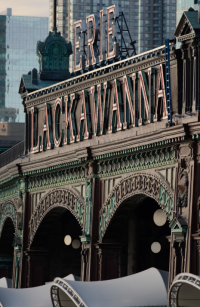 “Fast-forward to today,” she says. “My daughter is a sophomore at Hoboken High School, we still eat at our favorite restaurants and our roots have grown stronger with the addition of my husband and our 3 year-old son. We go to high school football games on Friday nights, farmer’s markets on Saturday mornings and barbecues on Sunday afternoons. We watch little league games at Mama Johnson field and then watch fireworks over the Hudson River on the same day. We don’t have a car. Living in a walkable city adds a deeper layer of community that we would miss out on if we lived in the suburbs. Having an incredible high school in our backyard has only added to our sense of home. We know our daughter’s friends and their families, and we all look out for each other. Hoboken High is really the best-kept secret in town!”
“Fast-forward to today,” she says. “My daughter is a sophomore at Hoboken High School, we still eat at our favorite restaurants and our roots have grown stronger with the addition of my husband and our 3 year-old son. We go to high school football games on Friday nights, farmer’s markets on Saturday mornings and barbecues on Sunday afternoons. We watch little league games at Mama Johnson field and then watch fireworks over the Hudson River on the same day. We don’t have a car. Living in a walkable city adds a deeper layer of community that we would miss out on if we lived in the suburbs. Having an incredible high school in our backyard has only added to our sense of home. We know our daughter’s friends and their families, and we all look out for each other. Hoboken High is really the best-kept secret in town!”
Sarah adds, “We live in Hoboken because it’s a city that’s not big enough to get lost in, but just big enough to find yourself in.”
Asked what she liked most about contemporary Hoboken, Yesenia says, “I like what they’ve done with the Waterfront. When I was growing up the Waterfront was only a place where people would go to drink and do drugs. There was always broken glass everywhere. Now I feel very safe living here.”
Defining Hoboken
As Hoboken continues to come to terms with its identity, the awkwardness still exists. Are we a big city or a small town? Should we struggle to maintain the fleeting past or forge our own new future? In a matter of years, we’ve collectively gone from having a chip on our shoulder to haughty sense of entitlement. Somewhere in the middle is an assertive confidence that Hoboken deserves.

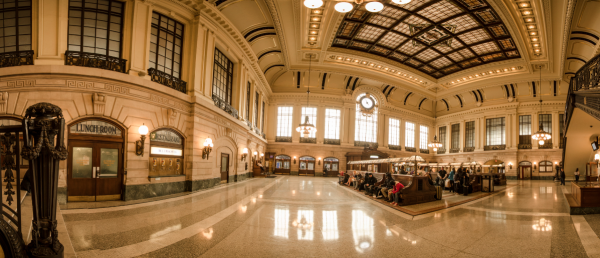
 Previous Article
Previous Article Next Article
Next Article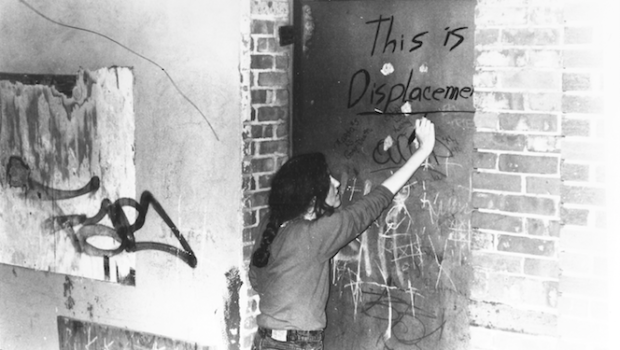 EXCLUSIVE: Filmmaker Nora Jacobson Discusses ‘Delivered Vacant’, the Award-Winning Documentary on Gentrification in Hoboken
EXCLUSIVE: Filmmaker Nora Jacobson Discusses ‘Delivered Vacant’, the Award-Winning Documentary on Gentrification in Hoboken 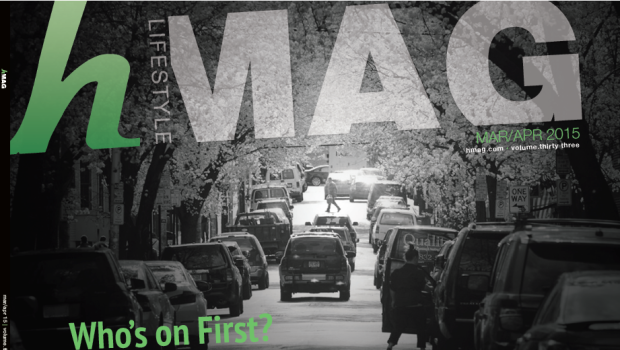 “A Nation of Shopkeepers” — the Latest Issue of hMAG
“A Nation of Shopkeepers” — the Latest Issue of hMAG 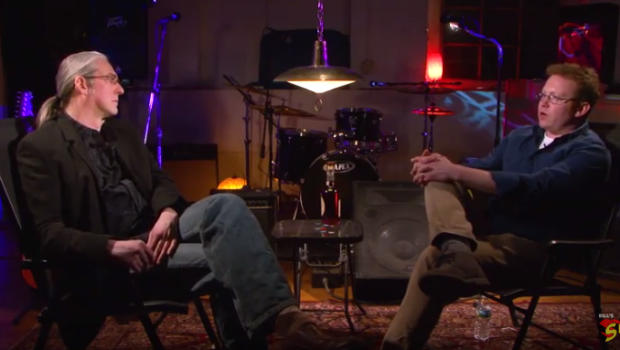 BILL’S SPACE SHOW: Sunshine, Lollipops, Rainbows… and Gerry Rosenthal
BILL’S SPACE SHOW: Sunshine, Lollipops, Rainbows… and Gerry Rosenthal 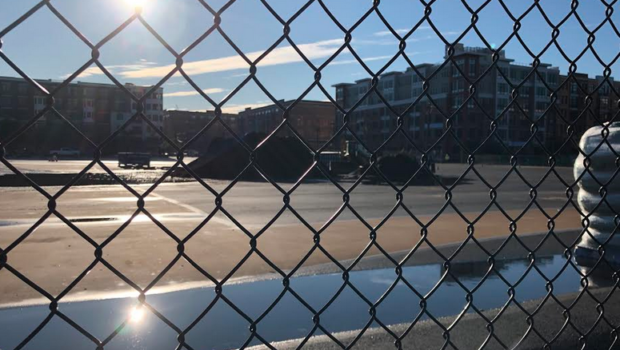 Hoboken Breaks Ground on Previously Encapsulated Industrial Site to Build Northwest Resiliency Park
Hoboken Breaks Ground on Previously Encapsulated Industrial Site to Build Northwest Resiliency Park 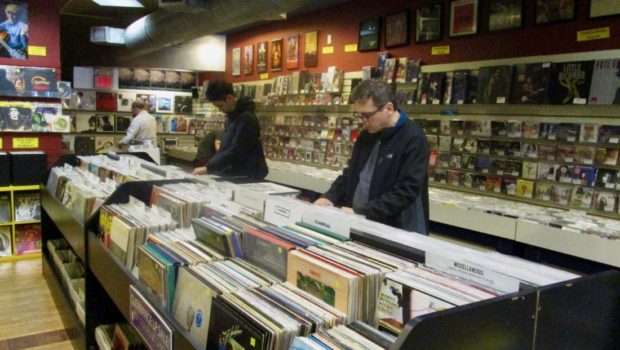 RIGHT IN TUNE, RIGHT IN TOWN: As Black Friday Approaches, Longtime Hoboken Record Store Tunes Still Changes With the Times
RIGHT IN TUNE, RIGHT IN TOWN: As Black Friday Approaches, Longtime Hoboken Record Store Tunes Still Changes With the Times 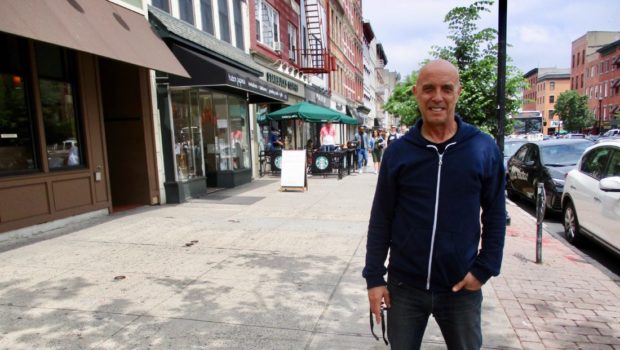 FREEDY RETURNS: Singer/songwriter Freedy Johnston found fame out of Hoboken in the 1990s—now he’s come back to his roots
FREEDY RETURNS: Singer/songwriter Freedy Johnston found fame out of Hoboken in the 1990s—now he’s come back to his roots  DRINK LOCAL: The Birthplace of American Brewing, Hoboken Taps Into the Craft Movement
DRINK LOCAL: The Birthplace of American Brewing, Hoboken Taps Into the Craft Movement 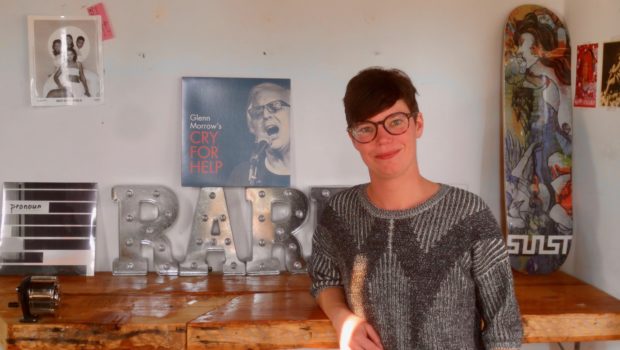 CHECK THE LABEL: With Rhyme & Reason Records, Emmy Black Becomes Part of Hoboken’s Proud Musical Legacy
CHECK THE LABEL: With Rhyme & Reason Records, Emmy Black Becomes Part of Hoboken’s Proud Musical Legacy